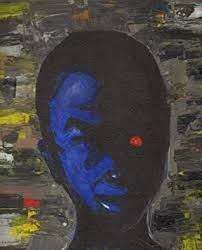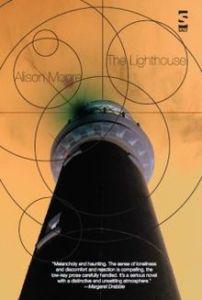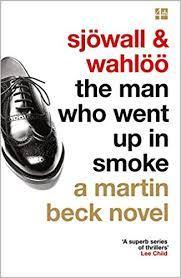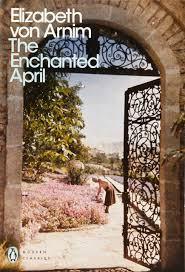May roundup
Despite still being very busy May was a reasonably solid reading month. I managed a bit of variation in terms of genre (SF, crime, literary, comic) and, while the books themselves were a mixed bag for me, the successes were very successful.
Household Gods and other narrative offences, by Tade Thompson

Tade Thomson is a highly regarded British-Nigerian SF/fantasy author.Back in March he published a short story collection for free, to give people something to read during lockdown.
One of the interesting things about Thompson’s work, beyond the simple fact that he can write, is that he draws in part on Yoruban tradition and folklore to inform his fiction. The title story involves a future Britain where the gods have returned, everyone’s gods. A young British-Nigerian woman appeals to a Yoruban deity for help in getting a job. Unfortunately, others going for the same role have prayed to their own gods…
Another story is written from the point of view of a ghost that doesn’t realize it’s dead, As Thompson says in an interview here
“In Yoruba culture, spirits are around us all the time, but there are three basic types: the people in the Afterlife. The people not yet born but aware and they can converse. And in the middle are the people who are alive but their spirit can be communicated with. “The character in ‘Slip Road’ doesn’t realize that he has slipped into a different category. He thinks he’s in the middle but he has passed into the Afterlife. This is a staple of ghost stories. His wife survived but he did not; the slip road is a slip road into death.”
Another story, Honourable Mention, involves a competition to stay awake (parallels with They Shoot Horses, Don’t They?) in which one competitor relies on a Faustian deal with a fetish-spirit to keep him going only to find it slowly replacing him. In the same interview Thompson explains:
“You cannot leave your context and stay the same person. The people who migrate always say, ‘We’ll go back to Nigeria’ but you change if you live in a different place, you become a hybrid, not accepted here or there. You become a new thing especially if you see success in a field in which you are not expected to succeed. There are a lot of compromises and the darker side might not be positive. Sometimes the choice may be between being a security guard or something illegal.
“The sport in the story, a staying-awake competition, is made up; but it is inspired by what happened to me when I came back to the UK. I took two jobs. One, I took blood samples at Chelsea and Westminster Hospital. And at night I worked in a Securicor depot. No sleep, no respect.The Yoruba term for working like this is ‘Fa gburu’.
“I was made to take an English exam when I arrived, even though I was born here and went to grade school here. Also a Professional and Linguistic Assessment Board exam and a medical exam to show I was properly trained. I had no problem with that—I always do well on standard exams. But I needed to prep the exam and eat at the same time and I didn’t want to depend on my parents, so I did two jobs and spent the rest of the time studying. Basically, I never went to bed.”
Households Gods is a very strong short story collection. It’s original, well-written and the Yoruban elements and wider parallels with real experience are fascinating. He’s one of relatively few SF/fantasy writers I can see crossing over into mainstream literary circles, though whether that happens is as much chance as talent so we’ll see.
The Bishop’s Bedroom, by Piero Chiara and translated by Jill Foulston

This is by the same author as The Disappearance of Signora Giulia, which I liked but didn’t love. I liked but didn’t love Bishop’s Bedroom too so I suspect that’s the end of my journey with Chiara. Great cover though.
We’re on Lago Maggiore in late 1940s Italy. The narrator is whiling away his time boating on the lake, traveling from port to port. He finds himself unexpectedly drawn into the circle of Orimbelli, a slightly larger than life figure who served in the Africa campaign and now lives with his older wife and his very attractive widowed sister-in-law.
What follows is a hothouse of lust and deception. Orimbelli seems like a womanising fool, but is he something much darker? We’re in psychological suspense territory here, with a classically slow buildup and a big emphasis on atmosphere (the descriptions of the lake itself are excellent).
Unfortunately, this one got interrupted a lot by work which didn’t help it. The first half of the novel mostly follows the narrator and Orimbelli’s adventures traveling around on the boat and sleeping with women they pick up along the way. That would be fine if you read through that quickly, soaking in the darker undercurrents as you go. Spread that section over several days though and it becomes a bit tedious, and to be honest a bit creepy in ways that I don’t think were entirely intended.
Guy liked this (see here) and so have many others, but it wasn’t my book. I’m in a minority though so if it sounds like it might be your thing I’d still suggest you check it out.
The Lighthouse, by Alison Moore

I got this back in 2012 when it was nominated for the Booker (not sure why I did as I’ve never hugely rated the Booker as a prize). It’s the story of a man named Futh who goes on a walking holiday in Germany after the failure of his marriage. He’s British, but has part-German ancestry and the trip becomes an opportunity to meditate on his own past and his difficult relationships with his father and his soon-to-be-ex wife Angela.
So far, so literary (if litfic is a genre, meditations of this sort are a key genre trope). Interspersed with Futh’s travels are episodes back in the guesthouse he starts his holiday in and plans to return to at the end. There the wife of the couple who runs the place sleeps with the guests, drinks too much, and is intermittently battered by her increasingly violent husband. The husband wrongly suspects Futh slept with his wife during his stay, so although Futh doesn’t know it he’s returning to a powder-keg.
The Lighthouse reminded me a bit of Ian McEwan, which if you like his work you should take as an endorsement. However, I find McEwan’s books incredibly artificial with unbelievable characters twisted by evident author fiat to their neatly plotted and often rather cruel denouements. I didn’t really believe in Futh, who is so hapless that I simply didn’t believe anyone would ever marry him (Angela repeatedly says to him “I’m not your mother”, but it’s clear that in part Futh married her to fill just that role). I didn’t really believe in the supporting characters either – why Angela who is shown to have been an intelligent and independent young woman would ever have married him for example, or stayed with him so long.
There are other contrivances, not least the landlady’s obsession with perfume and Futh working in the scent trade, and some frankly unlikely incidents (as a rule of thumb, if I found a discarded pair of knickers in my hotel room I wouldn’t carry them about in my hand for a bit before handing them in at reception. Who would? The plot demands it though…). Not my book.
The Man who Went up in Smoke, by Per Wahlöö and Maj Sjöwall and translated by Joan tate

This is the second of the famous Martin Beck ten-novel sequence that pretty much launched scandinoir as a genre. I don’t seem to have written up the first, Roseanna. That was quite an unusual book mostly in that it had an incredibly strong procedural element – Beck patiently sifts evidence, carries out interviews, at times the case (a murder) lies dormant for months until a new lead emerges.
In Smoke, Beck is called back from holiday to investigate the disappearance of a Swedish journalist in Budapest. That means going behind the Iron Curtain and following up a case where there are basically no leads. Matters aren’t made easier by the local Hungarian police proving to be extremely efficient and picking up very quickly on Beck’s unofficial investigation.
Beck spends quite a large part of the novel almost randomly casting for clues since he has so little to work with. It’s a very different depiction of police work from most crime fiction, with an emphasis on it being work. There’s no sudden intuitions here or flashes of brilliance. Beck gets results partly because he’s clever, but also in large part because he puts the hours in.
I have the whole set of Beck novels and at this point I’m firmly committed to them. I actually enjoyed this more than Roseanna. At one point its got a rather dated encounter with a young woman diagnosed as being probably a nymphomaniac (is there any more 1970s diagnosis than that?) but apart from that slightly odd note it holds up very well. Rock solid crime fiction and it’s no surprise that it helped spark a new genre.
The Enchanted April, by Elizabeth von Arnim

I mean, it’s simply wonderful. Very silly, but quite wonderful.
The cover above is the Penguin edition, which I had. I think it works very well. At Jacqui’s you can see the Vintage cover which is also excellent and directly references part of the novel. In any event, in case I’ve been unclear this is pretty much wonderful.
No doubt a trip to Italy would be extraordinarily delightful, but there were many delightful things one would like to do, and what was strength given to one for except to help one not to do them?
Jacqui gives this a slightly more detailed review here, but I’ve covered the essentials above. A shoo-in for my end of year list.
And that’s it! I’ll see if I can get my June round-up posted before we hit August.
